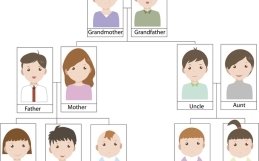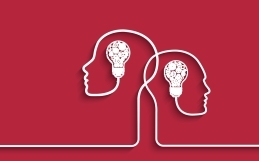Living Life with a Long-Term Outlook Instead of Seeking Short-Term Gain
We all wish we could live a life of pleasure and bliss, free of pain, worry, or anxiety. And, of course, we tend to wish the same for our children and other loved ones. As we evolve, most of us learn that there’s no escape from hardship in our own lives; but despite knowing this, we still hope that through our ability to control so much of our loved ones’ lives, we can at least protect them from the many challenges we’ve encountered in our own lives.
The truth is, there’s no way of protecting anyone from the challenges of life. What we really need to understand is that even if we could, it wouldn’t benefit us or them. Why? Because without challenges, we don’t develop or grow. For example, if children don’t rise and fall, and rise and fall again, they never learn how to walk. To learn any subject, we must go through the discomfort of study. Only one who has gone through the effort of raising a child can experience the satisfaction of those efforts. Only through extreme dedication and hard work can a student become a doctor. Only through trial and error, which sometimes even affects other people’s lives, can the doctor become even better. Only those who have suffered a loss can truly console someone experiencing the same. There are deep levels of emotional and intellectual wisdom that we only receive by going through difficult experiences.
No pain, no gain is a difficult truth we’d rather ignore. Yet it holds true. The best way to dispel darkness is with a ray of light. The best way to dispel fear is by looking it in the eye. The best way to look at a challenge is to ask, “What potential opportunity lies behind this?” The world is constructed in such a fashion that the opportunity always lies behind the challenge, and the pain always comes before the gain.
If you have children, work with kids, or have them in your family and want to make them happy, practice teaching them how to respond to challenges rather than protecting them from those challenges. Challenges are one of the greatest sources of potential growth and satisfaction. The more that we protect our youth, the more difficulty they’ll face when they encounter things we can’t protect them from. The more we guide and encourage our kids, the more independent and capable they’ll become. I don’t keep my kids from cooking because they might burn themselves; I encourage them to cook while observing them from behind. I don’t protect my kids from carrying a glass bowl; I encourage them to do so carefully. If the lesson costs me a $15 bowl, it’s the least expensive tutor I’ve ever hired for a lesson that will last a lifetime. There’s no greater teacher than experience. I’d never let my kids do things that would put them in real danger, and I make sure to protect them from experiences that I assess to be beyond their ability to handle. But there’s a big difference between assessing real danger and limiting our children because of our own fears.
There’s a story about a man watching a butterfly trying to squeeze out of a cocoon. After a few hours, the butterfly stopped moving. Feeling compassion for the poor butterfly, which seemed to be stuck, the man pulled a knife from his pocket and cut open the cocoon. The butterfly emerged very easily, but had a withered body and shriveled wings; it was unable to fly. What the man, with all his kind intentions, didn’t know was that the tiny, restrictive opening in the cocoon is a way of forcing fluid from the butterfly’s body to its wings so that it would be healthy and fly. Things that come without effort aren’t an achievement, or don’t have much meaning for us. When we put forth effort, it’s impossible for nothing to be achieved. The bottom line is that we must exert effort.
This takes us to the fundamental value of living life with a long-term outlook instead of seeking short-term gain. Anyone who invests in the market long-term will always come out with a gain. It’s those who become scared when the market drops and sell out of fear who always lose. Offering ourselves immediate comfort by taking the shortcut to avoid pain ends up costing us significantly down the road. Our shortcuts render us unprepared for life.
Rabbi Dr. Abraham Twerski shares an insight that he learned from lobsters. Lobsters are soft animals that live inside rigid shells that don’t expand; yet somehow, lobsters still grow. As they get bigger, the lobsters’ shells become very confining, and they begin to feel pressured and uncomfortable. So, as nature would have it, they go under rock formations to protect themselves from predatory fish, cast off their shells, and produce new ones. Eventually, the new shells become uncomfortable as the lobsters continue to grow; so once again, they discard their shells and produce larger ones, repeating this process many times throughout their lifespan.
The stimulus for a lobster’s growth is its discomfort. If lobsters avoided this discomfort, they’d never grow. Then they’d never cast off their restrictive shells and be able to grow new ones that serve them better. From the lobster we can learn to realize that times of stress are opportunities for growth, and if we use adversity properly, it can help us thrive.
I leave you with this question. Next time you experience a hardship or challenge in your life, will you get distracted by your attempt to understand why it happened and protest how unfair it is, or will you focus on what you can do with the experience by noticing the opportunity for growth it’s offering you?
Did you enjoy reading this article?
Once a week I send out a newsletter with new articles and unique content for readers. It is my way of staying in touch with you and giving you free advice based on some important topics.
Click here to sign up for my newsletter.
Talk soon,
Dr. Ilene






This is one of the best aericles you have written and they’re all great! It really resonated with me and helped me to see things in a different perspective. Thanks!
Thank you, I am glad that you found it useful.